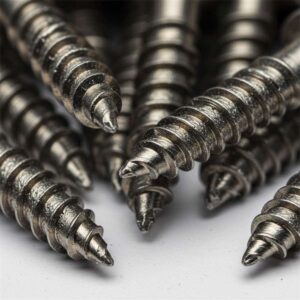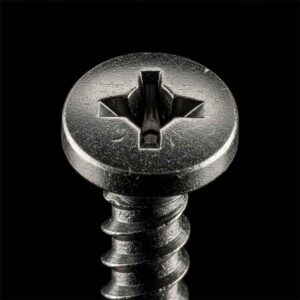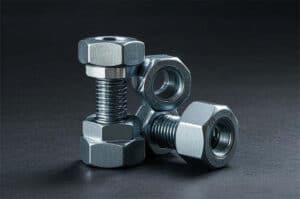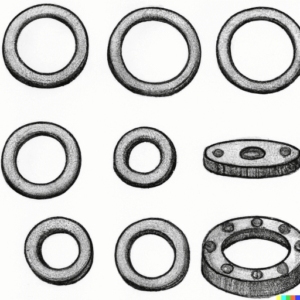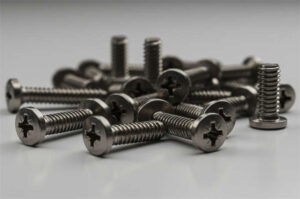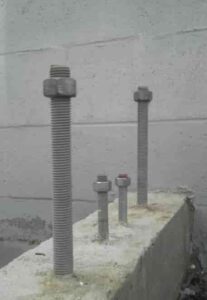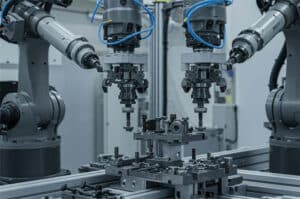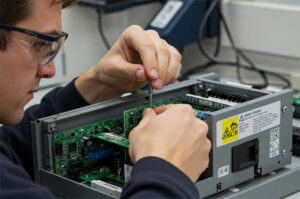Fasteners in Automation and Electronics
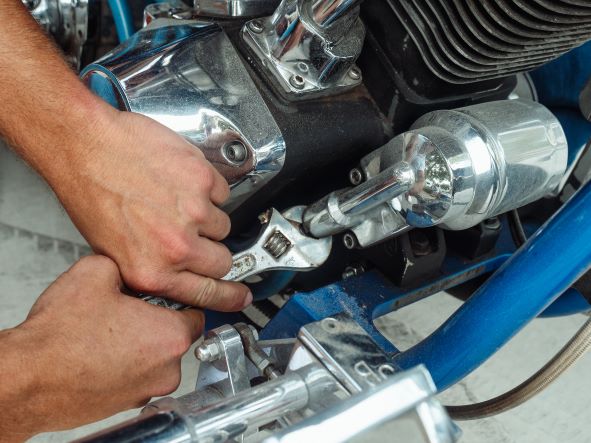
Two of the largest industries in our modern society require essential components that can provide reliability, security, stability, and other functions that vary in their application area. These essential devices called fasteners often go unnoticed yet they play a crucial role in most machinery, electronic devices, appliances, and more. Fasteners hold and secure objects or parts together to connect them for functionality.
There are various types of fasteners in automation and electronics that serve a similar purpose yet they have distinctive features. Fasteners in automation secure parts of the equipment in place. For example, they secure the assembly lines and connection of robots and other automated equipment to their workpieces. They’re also used to mount sensors and other electronic components on robots and other machines. While fasteners in electronics secure electrical components to printed circuit boards (PCBs) to chassis enclosures, and connect electrical wires and connectors.
Types of Fasteners
The type of fasteners used in automation and electronics vary on the specific application. However, here are some of the most common fasteners used for both industries:
- Screws: Screws are the most common fasteners in the electronics and automation industry. They are used in securing components like printed boards (PCBs), mounting brackets, and enclosures. They come in various types such as machine screws, self-tapping screws, set screws, and other custom fasteners made for specific requirements.
- Nuts and Bolts: The classic combination of nuts and bolts creates strong and durable joints in automation equipment. They are ideal for heavy-duty applications that require torque strength and specific needs.
- Rivets: Both automation and electronics utilize rivets for their ability to provide secure and permanent connections. They are ideal for applications like joining thin materials without the need for access to both sides.
- Clips and Clamps: These components are used to secure parts temporarily in place without the need for tools. They can be used in the assembly of routing wires and cables in the electronics industry.
- Adhesive Fasteners: Some cases use adhesive fasteners like double-sided tape and epoxy for securing components in place.
Application of Fasteners in Automation
- Machine Building: Fasteners used in industrial automation require tolerance for constant vibrations and loads to secure components. Most heavy-duty fasteners like bolts and some types of screws are used in robotic arms, conveyor systems, and other machinery.
- Control Panel Assembly: Fasteners are used in control panels to ensure wiring and circuity are organized and protected from external elements.
- Sensors and Actuators: Automation systems like sensors and actuators are positioned and secured using fasteners for accurate readings and controlled movements.
Application of Fasteners in Electronics
- PCB Assembly: Miniature screws and standoffs secure electronics components to PCBs and ensure the attachments are aligned to maintain electrical connections.
- Enclosures: Fasteners seal electronic enclosures to protect sensitive components inside from environmental factors such as dust, moisture, and electromagnetic interference, as well as tampering.
- Mounting Displays and Controls: Consumer electronics like smartphones and tablets use tiny screws to secure screens and control buttons in place.
Fasteners are available in various sizes from miniature to standard size it relays the significant function of securing parts together in automation and electronics. They are convenient devices that empower our modern world of electronic devices, engineered parts, machinery, and other advanced components. Therefore choosing fasteners is a critical step toward the reliability of assemblies and should be taken with careful selection.
Want to partner with a leading fastener manufacturer and supplier? Visit the most trusted high-quality fastener wholesaler – Prince Fastener Manufacturing Co., Ltd. We carry a wide range of fasteners in standard and non-standard sizes, types, etc. Contact us for your specific requirements and get competitive prices!

